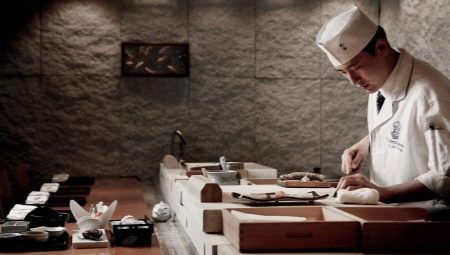The profession of a sushi chef is very much in demand, as in almost any fairly large settlement, more and more outlets are involved in the preparation and delivery of this popular Japanese dish. In this article, we will tell you what the job of a drying sushi cook is, consider the advantages and disadvantages of this profession, and talk about whether it is possible to get a job as a drying sushi cook without sufficient experience and education.
What is a sushi cook?
Nowadays it is difficult to find a person who has never tried sushi and rolls: these popular Japanese dishes are prepared literally on every corner. Sushi and rolls are easy to manufacture, they include healthy natural seafood, their taste is quite pleasant and harmonious.
A sushi cook is a person who cooks not only sushi and rolls, but also other dishes of Japanese cuisine. The work of the dried man is very responsible, because he must know the intricacies of cutting and cooking fish and other products that make up Japanese exotic dishes; understand the principle of their interaction with each other - because mixing several products leads to a change in their taste and beneficial properties. To get the right balanced taste of Japanese sushi, you must constantly improve in this profession.
The profession of a sushi cook is in demand due to the ever-growing demand for Japanese cuisine. Japanese restaurants often open vacant sushi masters.
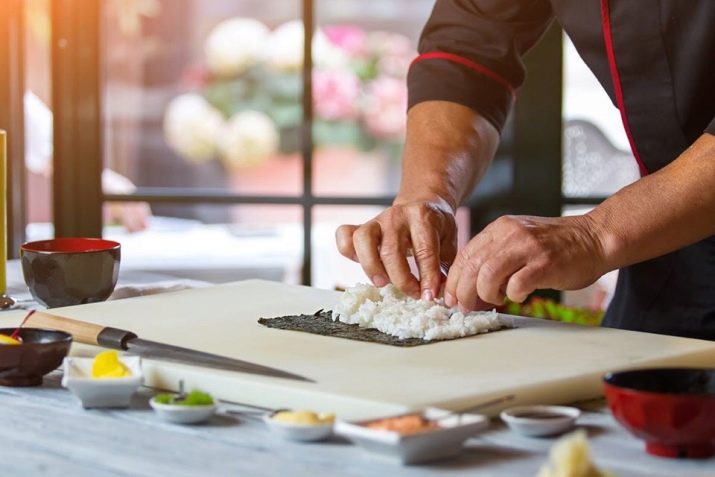
Advantages and disadvantages of the profession
It is no secret that in our time, many people cannot find a decent job. It is very difficult to get those who, even having received a special education, do not have experience in the profession. However, when it comes to vacancies for a cook-sushi, the situation changes. The fact is that students, guys and girls who need temporary earnings for the period of study are mainly employed in such work. therefore in this area there is a fairly strong staff turnover and, as a result, the availability of vacancies in this profession.
Thus, the first and most important advantage of the profession of sushi master is the opportunity to get a job, as they say, from scratch. Typically, in institutions that offer cooking of Japanese cuisine, newcomers are constantly required, which experienced masters teach all the skills of this profession right at the workplace. Of course, being an intern at first, you should not immediately rely on high earnings, but as you gain experience and gain speed and professionalism, earnings will also increase.
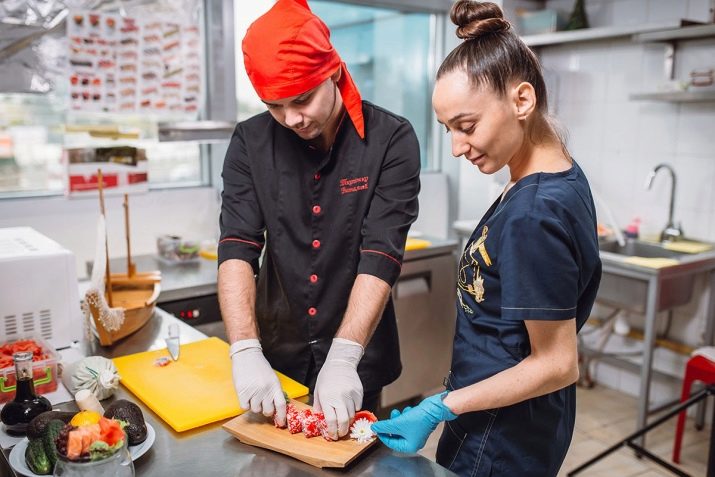
The second advantage of such a profession is the possibility of career growth. If you are neat, carefully listen to what experienced masters say to you, try to imitate their work, then your skills are constantly growing. According to reviews of those who have successfully mastered the profession of sushi cook, becoming a professional in this area is not very difficult, it is only important to strictly follow the instructions and try to work well. therefore some trainees achieve career advancement in just a few months.
For those who like to cook and make money on it, the profession of a sushi cook is a great idea. Cooking japanese food requires a special creative attitude, so this work is just right for people who want to develop in this area.
The disadvantages of the profession include, first of all, high physical activity: in the "hot" days you have to roll rolls literally without stopping. This can be difficult for people who are difficult to stand on their feet all day. Also, hours of hard work can provoke a stressful situation in the kitchen, therefore you must immediately be aware of how ready you are for such working conditions.
Perhaps that is why in Japan only a man can be a dry-cook. No women in this profession. Russia has a different mentality, but the profession of a cook is considered one of the most difficult even on the Russian labor market.
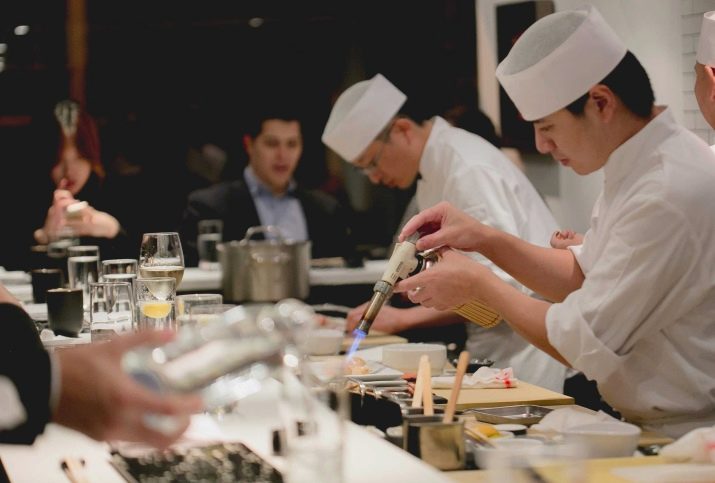
Responsibilities
The duties of the drying chef include:
- to prepare the workplace for the working day;
- prepare various dishes of Japanese cuisine according to recipes accepted in a particular company;
- well versed in technological maps;
- comply with sanitary-epidemiological and hygienic standards;
- Know the rules of cooking products;
- well versed in the quality of products for making sushi and rolls;
- comply with storage rules and the timing of the sale of products;
- Maintain cleanliness and order in your workplace;
- mark equipment, implements and utensils in accordance with SanPin;
- be able to use disinfectants and detergents;
- timely notify management of running out products, damage to inventory and equipment;
- participate in spring cleaning;
- be able to handle any equipment and take care of its safety;
- have a medical book and undergo a medical examination in a timely manner;
- if necessary, go to work at any retail outlet of the company;
- be able to work at any workplace in the kitchen;
- take part in the preparation of menus and recipes for prepared dishes;
- make applications for products.
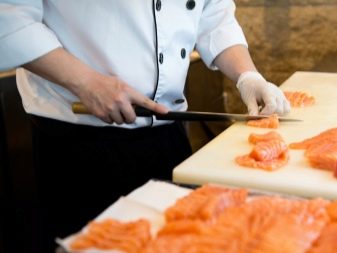
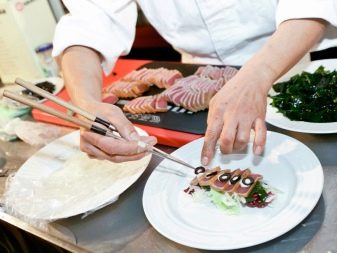
Job description
In addition to the above items, the job description states the following.
- The profession of a sushi cook belongs to the category of workers. This specialist is subordinate to his immediate superiors, which is usually the chef of a restaurant or any other institution involved in the preparation and delivery of Japanese cuisine.
- People with vocational education are accepted to the position of cook-sushi, however, these may be students who do not yet have work experience.
- A specialist should be able to cook, make, decorate and serve Japanese cuisine, well versed in the recipes, storage rules and cooking techniques of the semi-finished products used to prepare these national dishes.
- The employee must comply with labor protection instructions., to undergo preliminary special training before admission to work. Once every six months to undergo repeated training, and once a year - repeated medical examination and examination of knowledge on labor protection.
- Sushi cook works in special clean clothes, be sure to wear a hat (cap or scarf) and a special mask, monitors the cleanliness of clothing and personal hygiene.
- Sushi master is forbidden to eat at the workplace, smoke, wear jewelry. It is necessary to cut short nails and do not use varnish.
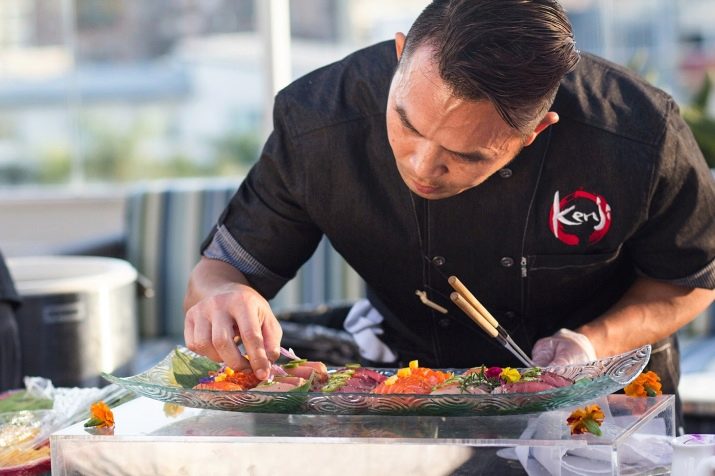
Personal skills and qualities
In order to succeed in the profession of a sushi cook, you need to have certain qualities. First of all, this is responsibility, because often the sushi master has to deal with raw seafood. Therefore, you should carefully inspect all products and semi-finished products, be able to distinguish quality from low-quality.
Beginner Drying Chef It is strongly recommended that you carefully listen to what older or more experienced craftsmen say.. Real professionals can always give practical advice, and the intern's task is to fulfill everything is as accurate as possible - the only way he can improve his professional level and begin to cook high-quality dishes.
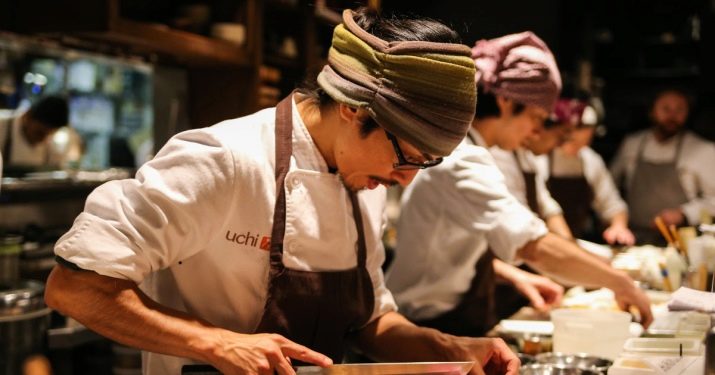
Experienced Sushi Chef must know the technology of cooking Japanese cuisine, be able to use various spices and flavors, to achieve the desired taste. He must also possess a certain aesthetic flair to beautifully design and serve the dish to customers.
Equally important is the speed of the cook's preparation of Japanese national dishes. In large restaurants and sushi bars, there are “hot” days when customers go one after another. This is usually Friday and the weekend. On such days, sushi cooks work very hard, literally without stopping. Very important Be able to withstand a high pace of work for several hours.
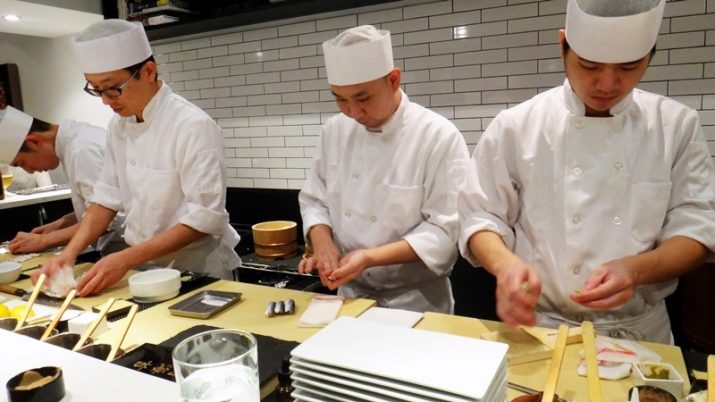
Career opportunities
In Japan, they are very sensitive to the profession of sushi. There, to become a professional in the preparation of sushi, you must have 25 years of seniority in this profession. It is believed that only for many years of practice, the chef adopts all the subtleties and secrets of cooking this dish - from rice cooking technology to the ability to work with special Japanese seasonings.
However, in our country the approach is somewhat different. As already mentioned, we can start a career as a sushi cook, as they say, from scratch. Many institutions prefer to recruit students in order to educate young children on the spot all the wisdom of this profession. Some restaurants even have a special person - Sushi trainer who is responsible for training trainees with no work experience. In other places such students are controlled by more experienced chefs, training them on the job.
Subject to a responsible and attentive attitude to work, successes will manifest quickly enough, and moving up the career ladder, from the student to the sushi master, will become a reality.
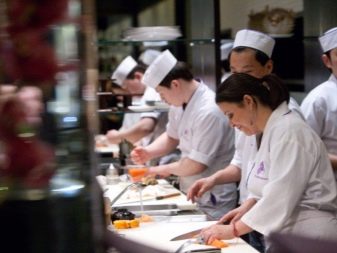
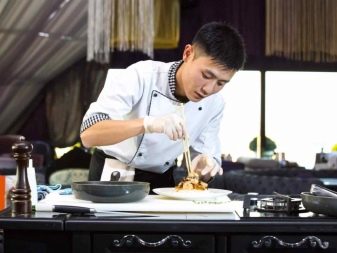
average salary
How much do our sushi masters earn? There is no single answer to this question, it all depends on the region where you currently liveas well as your personal skills.It is clear that experienced master dryers get more, trainees get less. The salary also depends on the number of work shifts, on the total number of working hours per month.
However, on average, the trainee’s salary can be 15,000 rubles a month, and an experienced cook-desiccant can get 40,000 rubles a month or more.
Do not forget about the percentage of sales: the more your rolls or sushi sold the restaurant or bar in which you work, the more you will receive money for your work.
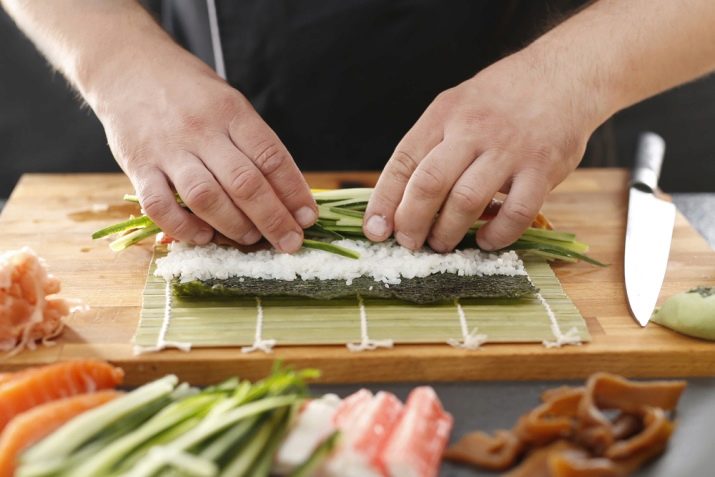
Where and how to learn?
To become a sushi cook, it is not necessary to undergo training in any special professional institution. Enough happens just finish the courses at your city’s training center, where they will explain everything to you and even help with further employment.
Can also learn at some restaurantif the opportunity presents itself. Often such training takes place in the format of trainings, when in 2-2.5 hours those who want to master the basics of the profession will learn how to cook rice, cut fish, vegetables, how to use a special mat for rolling rolls, and how to prepare a special Japanese dressing for sushi. Also exist express courses for professionalswho want to expand the list of those dishes that they can cook at their workplace.


Thus, the training period for a sushi cook in Russia is much shorter than in Japan, and this is due to the difference in cultural traditions of our countries. After all, it is clear that much less demands are placed on our cooks than in the Land of the Rising Sun. However, in order to become a real professional-dryer, in our country you have to work hard and improve your cooking skills. The basic rule for a sushi cook is he begins his studies by preparing his first course and honing this skill throughout his life.
